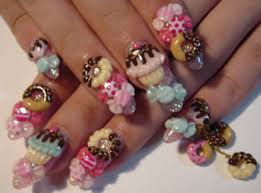记忆方法
将“gaudy”与“glow-y”(发光的)结合记忆,想象一个装饰华丽、颜色鲜艳的物体,其光芒或色彩使人感到俗气或过分张扬,这样就能帮助记忆“gaudy”表示俗丽、过分鲜艳的意思。
以上内容由AI生成, 仅供参考和借鉴
中文词源
gaudy 俗艳的
来自PIE*gau, 欢乐,词源同joy, jewel. 引申义带来欢乐的珠宝,装饰品。词义进一步贬义化,俗艳的,花里胡哨的。
英语词源
- gaudy
-
gaudy: [16] Middle English had a colour term gaudy-green ‘yellowish-green’, which originally denoted ‘green produced by dye obtained from the plant dyer’s rocket, Reseda luteola’, a plant formerly known as weld [14]. The word weld came from a Germanic source which, borrowed into Old French, produced gaude – whence English gaudy-green. It has been claimed that this gaudy soon lost its literal meaning ‘produced from weld-dye’, and came to be interpreted as ‘bright’.
Other etymologists, however, favour the explanation that gaudy comes from gaud ‘joke, plaything’ [14], which was adapted from Old French gaudir ‘rejoice’, a descendant of Latin gaudēre ‘delight in’ (from which English gets joy).
- gaudy (adj.)
- "showy, tastelessly rich," c. 1600; earlier "joyfully festive" (1580s), probably a re-adjectivizing of gaudy (n.) "large, ornamental bead in a rosary" (early 14c.) via the noun gaud + -y (2.). In early Modern English it also could mean "full of trickery" (1520s).
Or possibly the adjective is from or influenced by Middle English noun gaudegrene (early 14c.), name of a yellowish-green color or pigment, originally of dye obtained from the weld plant (see weld (n.1)). This Germanic plant-name became gaude in Old French, and thus the Middle English word. Under this theory, the sense shifted from "weld-dye" to "bright ornamentation."
As a noun, "feast, festival" 1650s, from gaudy day "day of rejoicing" (1560s).
权威例句
- 1. She was tricked out in gaudy dress.
- 她穿得华丽而俗气.
- 2. Gone are the support suspenders and gaudy steel rings that strangled the tower for much of the last decade.
- 过去十几年间斜塔四周起支撑作用的吊杆和绕在塔身上的华而不实的钢圈现已荡然无存.
- 3. His only peculiarity , was a habit of wearing impossibly gaudy neckties.
- 他唯一的怪癖就是佩带俗得令人不敢置信的领带.
- 4. The gaudy butterfly is sure that the flowers owe thanks to him.
- 浮华的蝴蝶却相信花是应该向它道谢的.
- 5. She wore a gaudy costume to the party.
- 她着一身色彩艳丽的服装参加宴会.

